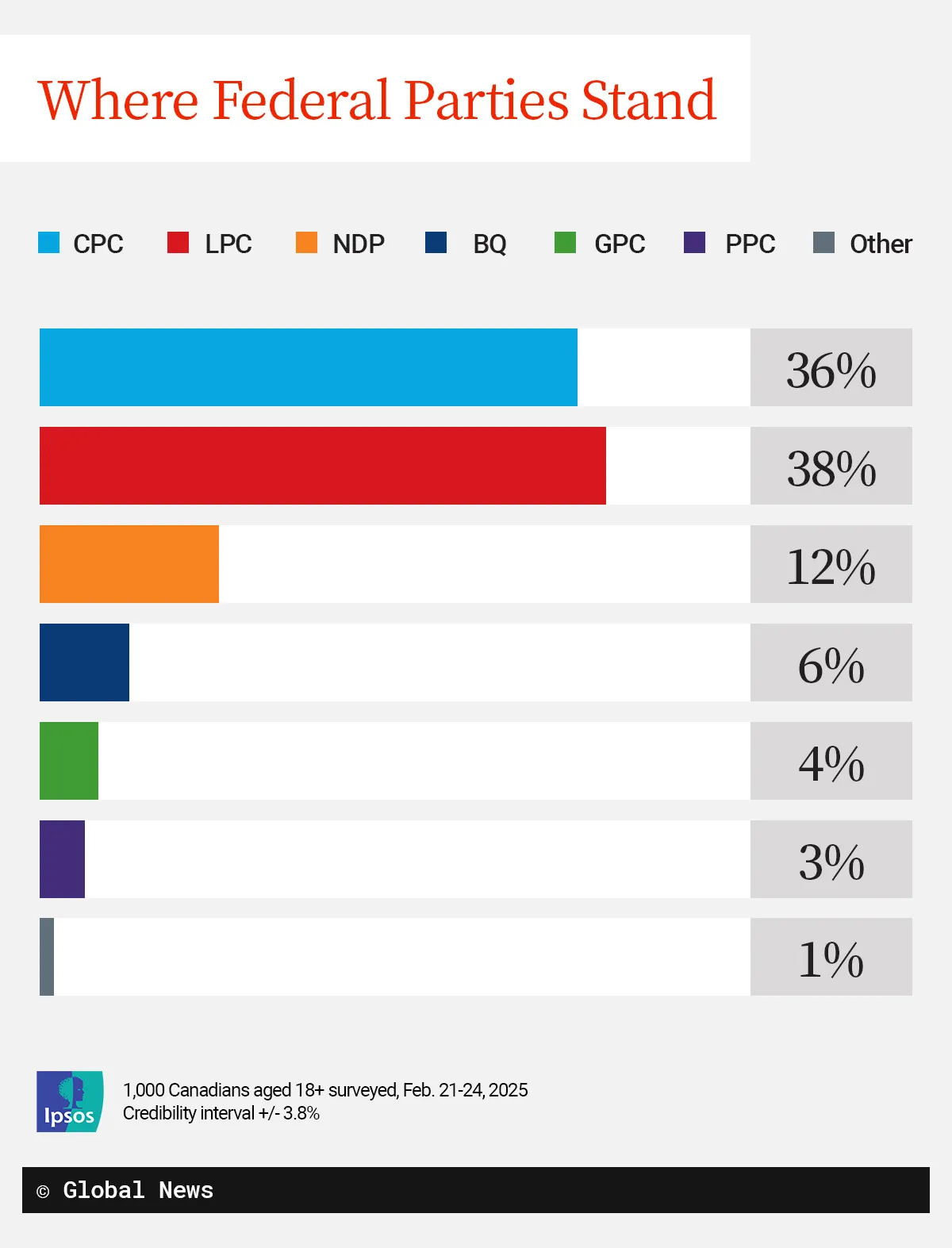For the first time in four years, the federal Liberal Party has pulled ahead of the Conservatives in a new Ipsos poll conducted for Global News, marking a dramatic shift in voter sentiment as Canada braces for economic uncertainty.
The poll, conducted between February 21 and 24, shows 38% of decided voters now support the Liberals, compared to 36% for the Conservatives—a stunning reversal from just six weeks ago, when Pierre Poilievre’s party held a commanding 26-point lead. The Liberals’ resurgence comes in the wake of Justin Trudeau’s resignation announcement, heightened concerns over Donald Trump’s proposed tariffs, and increased media attention on the Liberal leadership race.
Ipsos CEO Darrell Bricker attributed the shift to two main factors: growing interest in the Liberals’ next leader and a renewed focus on Canada-U.S. relations rather than past grievances with the Liberal government. “The threat from south of the border has moved us off of litigating whatever the Liberals did over the last 10 years to the here and now, which is dealing with the United States,” Bricker explained.
The poll reveals significant movement in Ontario, Quebec, and Atlantic Canada, where Liberal support has surged. The Conservatives, however, still hold strong numbers in Western Canada. Meanwhile, the NDP (12%) and Bloc Québécois (6%) both saw slight declines in support.
In early February, the Conservatives had 41% support, while the Liberals sat at just 28%. Their numbers had been as low as 20% in January, nearing the historic lows of 2011 when the party suffered a devastating electoral defeat under Michael Ignatieff.
Adding to the uncertainty, Trump’s looming tariffs on Canadian exports have created a new economic crisis, shifting the political landscape. Poilievre, who has built much of his campaign around attacking the Liberal carbon tax, has been forced to adjust his messaging. His party has recently adopted a “Canada First” slogan, seeking to regain ground amid the shifting political winds.
Despite this, 86% of Canadians now say they want a federal election immediately, believing that Canada needs a new prime minister with a clear mandate to confront Trump’s economic threats. With the Liberal leadership vote set for March 9, and Trump’s tariffs scheduled to take effect on March 4, the race for Canada’s next leader has never been more urgent.

